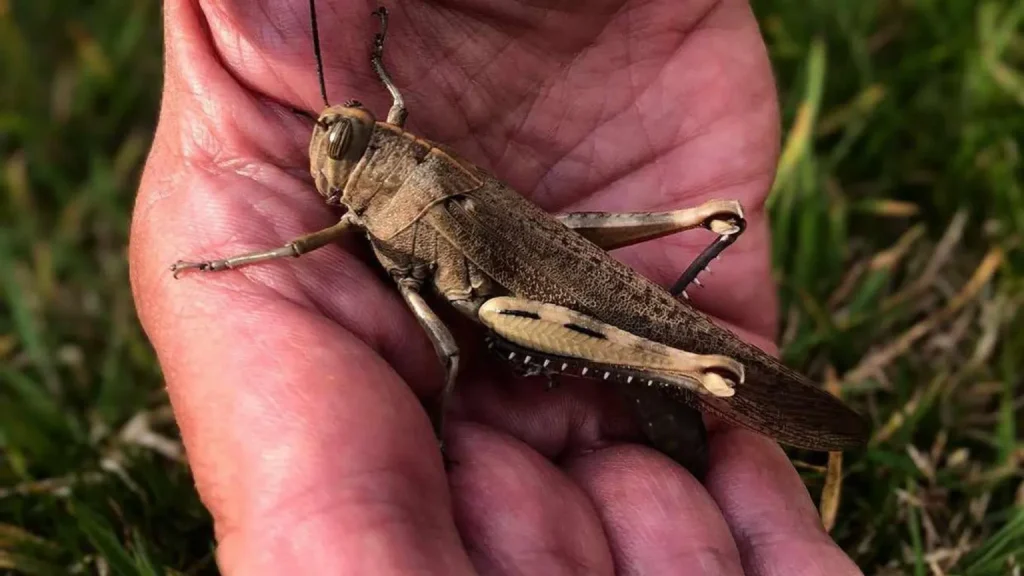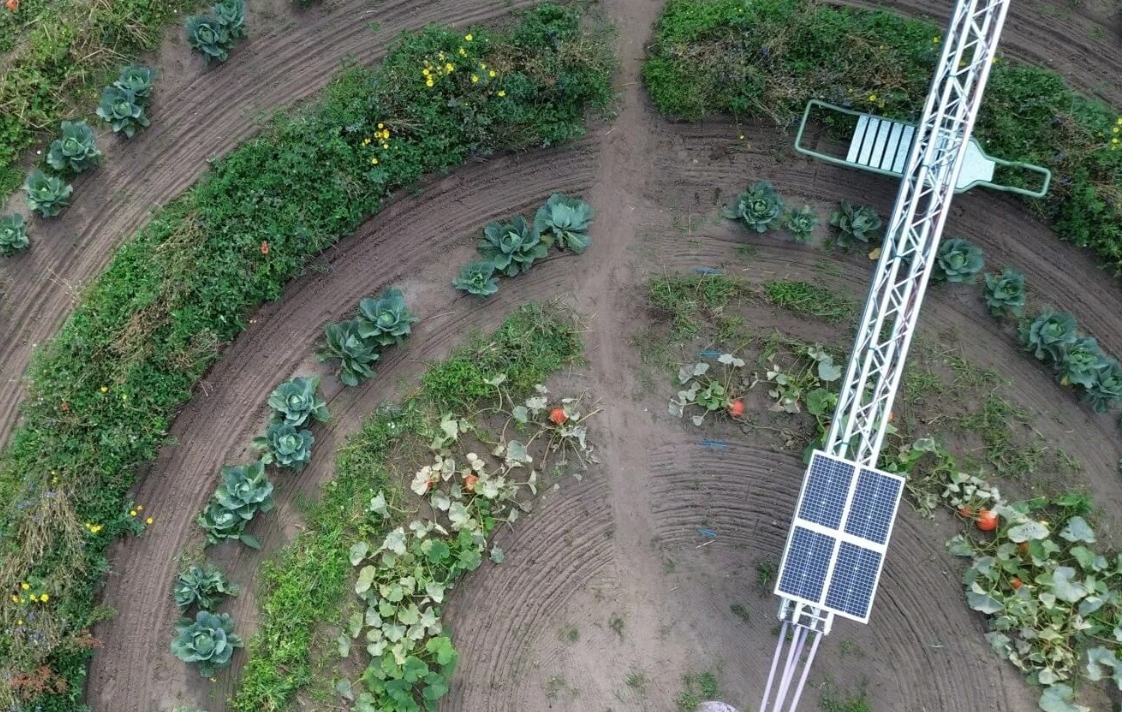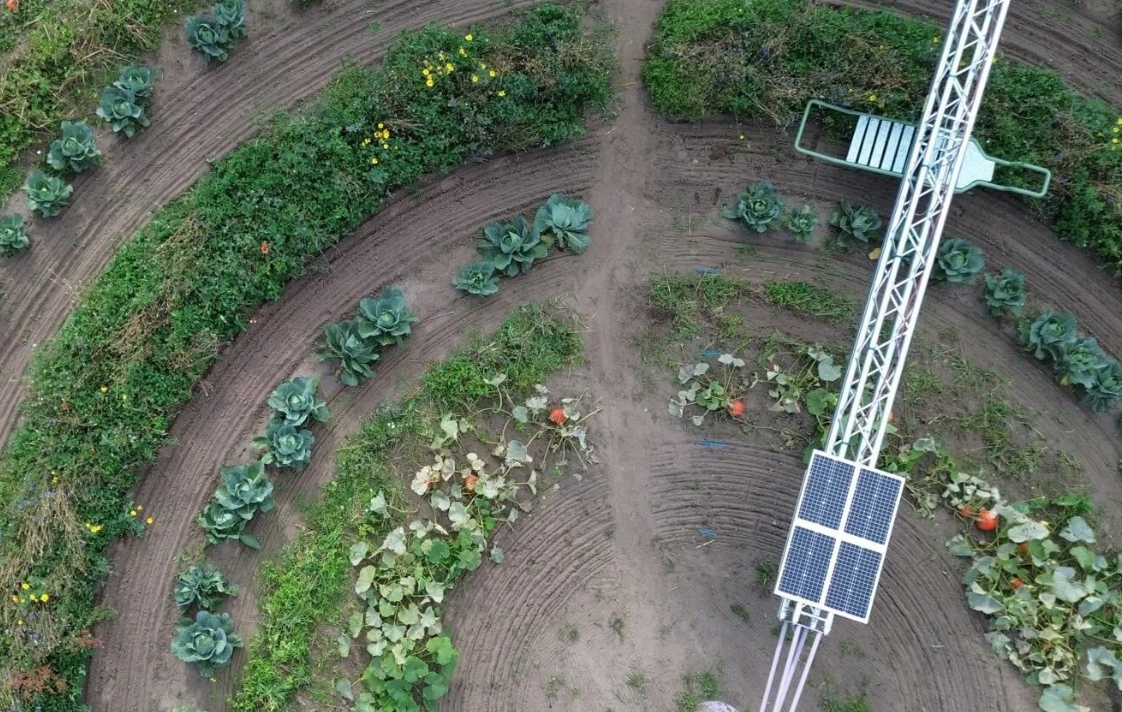So why should a single locust in Cornwall matter? Because it might be a harbinger of climate change and shifting weather patterns. Warmer, drier extremes and stronger winds can help migratory insects push further north. A recent study links increased locust outbreaks to climate anomalies like heavier rainfall and wind patterns.
The post Egyptian locust appears at English beach town signaling climate change appeared first on Green Prophet.
An Egyptian locust appears in Cornwall
Locust invasions once seemed like a relic of ancient or faraway crises — the stuff of Bible stories or news from Africa and the Middle East. Over the years, we’ve chronicled grim scenes in Yemen and Egypt, and even spotlighted creative survival strategies (like the recipes of chef Moshe Basson) turning locusts from scourge to sustenance. But what was once viewed as someone else’s problem may now creep into British backyards.
In August 2025, a gardener in Cornwall spotted an Egyptian locust (Anacridium aegyptium) in their garden — a rare find in the UK. The Cornwall Wildlife Trust confirmed the sighting, noting that such insects are typically native to the Mediterranean and North Africa according to the Cornwall Wildlife Trust.
Fried grasshoppers by chef Moshe Basson –- get the recipe here
Experts believe this locust was carried north by the same meteorological system that deposited Saharan dust across Cornwall. While one or two migrant locusts reach Britain each year, climate shifts could make the UK more welcoming to non-native species in the years ahead and this worries ecologists and farmers. The trust said the species were thought to arrive on the strong winds from the south east, adding it was likely the locust arrived on the same wind “that’s dumping Saharan dust on our cars overnight”.
A handful of locusts in Yemen
The Cornwall Trust urges residents to report unusual insect sightings, helping build a picture of new species’ movements and possible ecological impacts.
The idea of locusts sweeping across the region is not hyperbole — history bears it out:
-
Between 2019 and 2022, enormous swarms of desert locusts (Schistocerca gregaria) devastated parts of East Africa, the Arabian Peninsula, and the Middle East, threatening crops and food security across 23 countries.
-
In Yemen, conflict weakened agricultural monitoring systems, making the country a key breeding ground. Efforts supported by the FAO and other partners managed to control infestations over tens of thousands of hectares according to the World Bank.
These episodes show how quickly locusts can transform from scattered pests into regional plagues, especially when conditions align in their favor — heat, rainfall after drought, and weak surveillance systems.
Chef Moshe Basson makes meals from Egyptian locusts. They are the only insect that can be considered kosher to eat
What This Means for the UK and the world?
So why should a single locust in Cornwall matter? Because it might be a harbinger of climate change and shifting weather patterns. Warmer, drier extremes and stronger winds can help migratory insects push further north. A recent study links increased locust outbreaks to climate anomalies like heavier rainfall and wind patterns.
Locusts are known for their gregarious transformation: under crowded conditions and favorable environments, solitary locusts morph into swarming hordes, dramatically increasing their threat. If the UK becomes more hospitable—warmer summers, longer dry periods—such migrant insects may find it easier to survive and reproduce beyond occasional stragglers.
If locusts concern you, read about the devastating locust plague in Africa in 2020, and tips for getting rid of the plague.
The post Egyptian locust appears at English beach town signaling climate change appeared first on Green Prophet.




